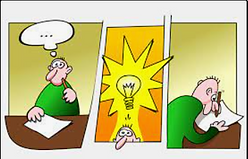non-conscious intelligence
- samer shbaro
- Oct 19, 2021
- 4 min read
Updated: Dec 1, 2023
If I ask you to remember tying your shoes, you'd probably remember some of the times you did. Maybe the first time you learned how to do it, a couple of times when tying your shoes was complicated, resulted in a bigger issue, or was associated with another important event taking place simultaneously. Surely you will not remember every single time you tied your shoes. On the whole, you are generally not aware - or not fully conscious- of tying your shoes, putting on your pants, brushing your teeth, taking a shower, using utensils and so on. All these 'non-conscious' behaviors have become more or less automatic. We do them so well because they are based on thousands of previous experiences (engagements). Every single time each one of these events varies ever so slightly, yet even with these variations, on the whole, these behaviors remain non-conscious. They only matter if they were complicated, resulted in a bigger issue or a bigger finding, or were associated with another important event taking place simultaneously. We go about our lives doing many of these non-conscious behaviors all the time.
Another form of non-conscious intelligence is having a hunch. Something you believe is not based on your own intelligence, but rather just a feeling of chance that comes from the ether (the unknown, the heavens, an inspiration). Whereas in actuality, a hunch is a mental or physical action decided upon by previous experiences. It is a non-conscious process that culminates in a final deduction (or induction) that you mistakenly believe to be baseless. A hunch is absolutely based on your own mental processing from your own subjective past experiences.
For instance, sometimes you are listening to someone tell a story and you think to yourself "I have a hunch this person is being dishonest."
What does that mean in this case? This hunch that someone is dishonest.
It means their verbal or physical ques are telling you they are.
But you may say "I have never studied body language or interrogation techniques."
True you have not, but you have had thousands of experiences watching and listening and engaging with people telling stories. This has built a database in your mind associating specific verbal and nonverbal ques with the authenticity or credibility of a story and the story teller.
One proof of that is that you never have a hunch about something you completely don't know. If someone asks you to guess something in a domain foreign to you, you would not have a hunch. If someone asks you 'do you think in quantum entanglement the speed of light is relevant?' You cannot have a hunch because the topic is so alien to you. A hunch is rooted in knowledge. A non-conscious form of knowledge.
Similarly- and conversely- consciously and actively knowing something prevents you from having a hunch on it. For instance, a person who has actually studied body language or interrogation techniques, would not have a hunch on whether the person is lying or not; they'd have an informed opinion (irrespective of whether it is right or wrong).
This is non-conscious intelligence. Thousands of engagements with a particular experience makes you knowledgeable about it, even if you are unaware of it. That is why, tying your shoes, putting on your pants, brushing your teeth, taking a shower, and using utensils are intelligent behaviors that you dismiss as simple; because you are unaware of the level of intelligence you have acquired with regards to them. All these actions, if requested from someone who has never performed them before would require training (with varying degrees depending on which of the actions and who is the trainee). Yet we do them so effortlessly, because we have done them thousands of times. We have become intelligent in doing them.
So, now that we have established that non-conscious intelligence exists ubiquitously, many questions arise.
How much of our lives do we spend non-consciously?
What would happen if we were aware of everything we do?
Do we become better in everything we do, with no additional time required, if we just simply focus and be in the moment?
Is it even possible to be aware of all our physical engagements?
Do we even want to be aware of all our physical engagements?
We need to have non-conscious intelligence to ensure we have time in our mind for ideas, for the things we need to plan for in the future, for reviewing the past, for predictions, for analysis, and for improving in other aspects of life that require more mental time than physical time. To ensure success in important engagements, we must allocate more mental time to engage with those events while being physically occupied with other non-conscious engagements. Think of giving a speech and taking a shower. You want to use the time while you are physically taking a shower to prepare mentally for the speech. Though the speech in physical time would require as much as taking a shower. You want that non-conscious intelligence to kick in and take over in the shower while you engage mentally with the important speech.
We need non-conscious intelligence. It is a fundamental developmental tool essential to our survival.
The questions that have arisen still stand. Read them again. What are the answers?





Comments